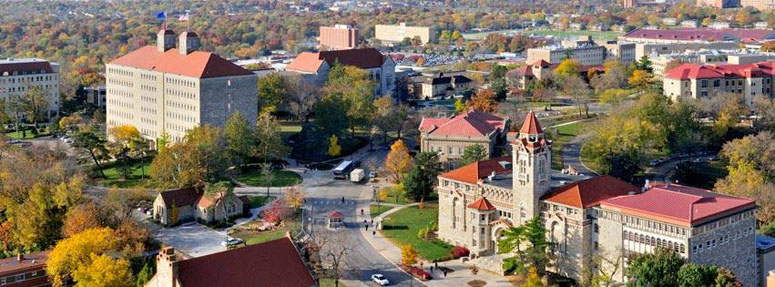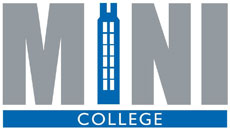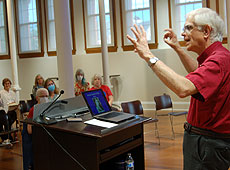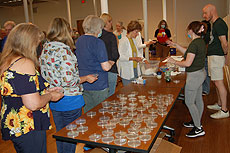The following was the schedule of speakers and events for 2024 Mini College. All locations were in Slawson Hall, 1420 Naismith Drive, unless otherwise noted:
Monday, June 3
7:45 a.m. – Registration begins.
8 a.m. – Coffee, tea and pastries will be served.
8:30 a.m. – Preliminary remarks.
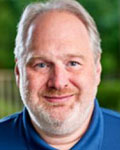
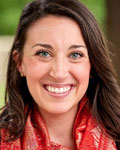 8:45 – 10:00 a.m. — Sean Swindler, project manager of KU’s Center on Developmental Disabilities, and Dr. Kathryn Unruh, an assistant research professor at the Kansas Center for Autism Research and Training (K-CART), will speak on “Our Emerging Understanding of Autism.” Swindler is the director of community program development and evaluation at K-CART. Dr. Unruh is co-leader of the Biobehavioral Research in Autism, Intellectual and Neurodevelopment disabilities (BRAIN) laboratory.
8:45 – 10:00 a.m. — Sean Swindler, project manager of KU’s Center on Developmental Disabilities, and Dr. Kathryn Unruh, an assistant research professor at the Kansas Center for Autism Research and Training (K-CART), will speak on “Our Emerging Understanding of Autism.” Swindler is the director of community program development and evaluation at K-CART. Dr. Unruh is co-leader of the Biobehavioral Research in Autism, Intellectual and Neurodevelopment disabilities (BRAIN) laboratory.

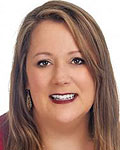 10:30 – 11:45 a.m. — Jason Booker and Megan Walawender will lecture on “The Changing Landscape in College Athletics.” This presentation will cover the changes in college athletics focusing on the intersection of these areas: Name, Image and Likeness (NIL) — what it is, how Kansas Athletics has approached NIL and the variety of the issues surrounding name, image and likeness; an overview of recent and pending litigation related to college athletics that will shape the future (from antitrust cases related to NCAA rules to FLSA actions to National Labor Relations Board cases seeking employee status for student-athletes); and other areas impacting KU college athletics, such as sports wagering and construction projects.
10:30 – 11:45 a.m. — Jason Booker and Megan Walawender will lecture on “The Changing Landscape in College Athletics.” This presentation will cover the changes in college athletics focusing on the intersection of these areas: Name, Image and Likeness (NIL) — what it is, how Kansas Athletics has approached NIL and the variety of the issues surrounding name, image and likeness; an overview of recent and pending litigation related to college athletics that will shape the future (from antitrust cases related to NCAA rules to FLSA actions to National Labor Relations Board cases seeking employee status for student-athletes); and other areas impacting KU college athletics, such as sports wagering and construction projects.
Booker is Kansas Athletics’ deputy athletics director for external affairs and revenue generation. He comes to KU after serving as the senior director of corporate partnerships and broadcast sales for the Kansas City Royals since 2014. Booker brings more than 24 years of professional experience with him back to Lawrence. Prior to joining the Royals, he served as the executive director and general manager for Jayhawk IMG Sports Marketing for seven years. In this role, he oversaw the day-to-day corporate partnership program and operation functions with the University of Kansas, including the Jayhawk Radio and TV Networks.
Walawender began working with Kansas Athletics as associate athletics director for legal affairs in 2018. She is also a senior associate general counsel in the University’s General Counsel’s Office, where she began in April 2016. Though primarily working in Athletics, she maintains duties with the University in this role. When she was in a full-time capacity in the General Counsel’s office, she handled litigation matters on behalf of the University across all campuses. This year she will finish serving on the Kansas Continuing Legal Education Commission board, following a six-year appointment. Before coming to KU, Walawender was a partner at a Kansas City law firm, specializing in employment law and in litigation related to statutory, tort, and contract actions.
11:45 a.m. – 1:15 p.m. – Lunch on your own.
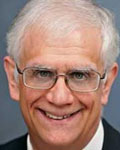 1:15 p.m. – 2:30 p.m. — Dr. Paul Laird, who delivered a lively lecture on the life and music of George Gershwin at Mini College in 2022, and another on Leonard Bernstein last year, will entertain us with a presentation on “The Basics of J.S. Bach.”
1:15 p.m. – 2:30 p.m. — Dr. Paul Laird, who delivered a lively lecture on the life and music of George Gershwin at Mini College in 2022, and another on Leonard Bernstein last year, will entertain us with a presentation on “The Basics of J.S. Bach.”
Dr. Laird has taught at KU since 1994 after previous experience at Pennsylvania State University, Binghamton University and the University of Denver. He teaches courses on musical theater, Baroque music, American music, and music of the 20th century, in addition to more general music history classes. He himself is an active Baroque cellist. He also has offered many classes through the Osher Institute for Lifelong Learning since its inception at KU.
Laird is a leading scholar on the American musical theater. He is the author of numerous books, one of his latest being “Dueling Grounds: Revolution and Revelation in the Musical Hamilton” (with Mary Jo Lodge) in 2021.
In 2002, he won a University of Kansas W.T. Kemper Fellowship for Teaching Excellence. In 2021, he won the University of Kansas Chancellor’s Club Career Teaching Award.
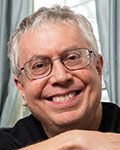 3:00 – 4:15 p.m. — Dr. Bruce Frey, who entertained us with a presentation on the history of comic books in 2022, will return to lecture on “The Golden Age of Bubblegum Music.” “Bubblegum music is difficult to define and is often misunderstood,” Dr. Frey says. “Classically, it refers to simple, unsophisticated, catchy pop music from the late 1960s. Most bubblegum music was produced by bands that didn’t exist, like The Monkees, The Archies, The Brady Bunch and The Partridge Family.”
3:00 – 4:15 p.m. — Dr. Bruce Frey, who entertained us with a presentation on the history of comic books in 2022, will return to lecture on “The Golden Age of Bubblegum Music.” “Bubblegum music is difficult to define and is often misunderstood,” Dr. Frey says. “Classically, it refers to simple, unsophisticated, catchy pop music from the late 1960s. Most bubblegum music was produced by bands that didn’t exist, like The Monkees, The Archies, The Brady Bunch and The Partridge Family.”
Dr. Frey is a KU professor in educational research. He is an award-winning teacher and best-selling author of statistics textbooks. He spends his spare time collecting comic books and trying to hide his secret identity of Professor Bubblegum as the host of Echo Valley, a popular podcast that celebrates bubblegum music from the late 1960s.
Tuesday, June 4
8 a.m. – Coffee, tea and pastries will be served.
8:30 a.m. – Preliminary remarks.
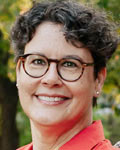 8:45 – 10:00 a.m. — Prof. Lisa McLendon, whose four prior appearances at Mini College have drawn rave reviews, will lecture on “Punctuation: The Road Signs of Writing,” a subject you only thought was boring. English has a wealth of punctuation marks. We’ll take a look at what they are, how they work, where they come from and some tricky areas surrounding these characters that run along the outer rows of our keyboards.
8:45 – 10:00 a.m. — Prof. Lisa McLendon, whose four prior appearances at Mini College have drawn rave reviews, will lecture on “Punctuation: The Road Signs of Writing,” a subject you only thought was boring. English has a wealth of punctuation marks. We’ll take a look at what they are, how they work, where they come from and some tricky areas surrounding these characters that run along the outer rows of our keyboards.
Prof. McLendon joined KU as the coordinator of the Bremner Editing Center in August 2012. She spent seven years as the deputy news desk chief at the Wichita Eagle. She launched her journalism career on the copy desk at the Denton (Texas) Record-Chronicle after earning a doctorate in Slavic Linguistics from the University of Texas. She has taught news editing at the University of North Texas, Friends University in Wichita, and Wichita State University. Prof. McLendon is a member of the American Copy Editors Society and has presented numerous sessions at national and regional ACES conferences on topics such as grammar, punctuation, headlines and math. She is the author of “The Perfect English Grammar Workbook,” published in 2017. She loves linguistic humor, proper use of the verb “comprise,” and numbers that add up.
 10:30 – 11:45 a.m. — Joe Walden, an associate teaching professor in analytics, information and operations management at KU, will lecture on “Modern Day Slavery in the Supply Chain.” Prof. Walden, who has written extensively on the subject, estimates the number of workers living in slavery conditions to be between 17 and 21 million worldwide. In the U.S., it is a contributing – albeit camouflaged – component of the supply chain, he says.
10:30 – 11:45 a.m. — Joe Walden, an associate teaching professor in analytics, information and operations management at KU, will lecture on “Modern Day Slavery in the Supply Chain.” Prof. Walden, who has written extensively on the subject, estimates the number of workers living in slavery conditions to be between 17 and 21 million worldwide. In the U.S., it is a contributing – albeit camouflaged – component of the supply chain, he says.
Walden has more than 45 years of experience in supply chain management as a soldier, consultant, practitioner and educator. He has been at KU since 2009. Prior to that, he served more than 26 years in the U.S. Army and worked as a consultant and training developer. He designed and operated the distribution system for Operation Iraqi Freedom, including designing and operating a 4.2-million-square-foot distribution center in Kuwait. He was recently awarded a Lifetime Achievement Award by the Supply and Demand Chain Executive Magazine for his career in supply chain management. He was previously awarded the 2004 Practitioner of the Year and in 2003 was selected one of the top “20 Supply Chain and Logistics Executives” worldwide. In addition, he is a world champion powerlifter with more than 60 world records.
11:45 a.m. = 1:00 p.m. – Pizza lunch in Slawson Hall.
1:15 – 2:30 p.m. – Your choice of tours: Spencer Art Museum, the Lied Center, or herpetology exhibits at the Natural History Museum.
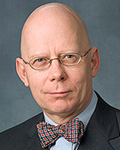
3:00 – 4:15 p.m. — Prof. Robert C. (Robin) Rowland, who has spoken at nearly all of our previous gatherings, will lecture on “The Arc of Reagan’s Soviet Rhetoric: A Grand Strategy for the Cold War.” He says, “I will discuss the evolution of Ronald Reagan’s Cold War rhetoric and show how it was a crucial element in his overall strategy for winning the Cold War. In fact, the arms buildup that Reagan initiated was fundamentally rhetorical in that it was designed to send a message and to increase deterrence, rather than to be used in actual conflict. The arc of Reagan’s Cold War rhetoric demonstrates that he had a sophisticated grand strategy for winning the Cold War, a strategy that was successful …. Reagan’s Cold War rhetoric and strategy are quite relevant for the debate about U.S. policy toward Russia today and aid to Ukraine.”
Dr. Rowland teaches rhetoric and argumentation at KU. He has won four university-wide awards for teaching, three college or university-wide awards for advising, and a national award for teaching from the National Communication Association. He has won several national awards for his research and has published four University Press of Kansas books, one of which won the Kohrs-Campbell Prize in rhetorical criticism. His most recent book, “The Rhetoric of Donald Trump,” was published in 2021. His more than 100 published essays have appeared in several journals and a number of books. Dr. Rowland presented the keynote on rhetoric at the Reagan Centennial. As a KU student in 1976, he and his debate colleague won the National Debate Tournament.
Wednesday, June 5
8 a.m. – Coffee, tea and pastries will be served.
8:30 a.m. – Preliminary remarks.
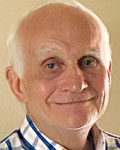 8:45 – 10:00 a.m. — Charles Keller, a retired KU engineering professor and frequent lecturer at the Osher Institute, will discuss “The Coming Fourth Industrial Revolution.” Characteristics of the first three industrial revolutions included 100 to 1 productivity increases; new industries being created; and full implementation of new concepts that took about 40 years. We can expect the coming fourth industrial revolution to have these same characteristics, Keller says. The class will review the first three industrial revolutions and then examine how emerging technologies such as artificial intelligence, quantum computing, robotics and 6G wireless will likely form the foundation for the fourth one. Potential changes in how life might change in this new environment will be examined.
8:45 – 10:00 a.m. — Charles Keller, a retired KU engineering professor and frequent lecturer at the Osher Institute, will discuss “The Coming Fourth Industrial Revolution.” Characteristics of the first three industrial revolutions included 100 to 1 productivity increases; new industries being created; and full implementation of new concepts that took about 40 years. We can expect the coming fourth industrial revolution to have these same characteristics, Keller says. The class will review the first three industrial revolutions and then examine how emerging technologies such as artificial intelligence, quantum computing, robotics and 6G wireless will likely form the foundation for the fourth one. Potential changes in how life might change in this new environment will be examined.
Keller worked more than 15 years each at Sprint and Black and Veatch in senior executive positions. In these capacities he spoke at regional, national, and global conferences on topics such as telecommunications, globalization, automated engineering and privatization. In 2000 he moved to an eight-year-long academic career as a professor in the KU Master of Engineering Management program teaching business strategy and finance. In 2004 he took a leave of absence from KU to direct the Iraq rebuilding program.
 10:30 – 11:45 a.m. – Prof. Shawn Leigh Alexander, director of the Langston Hughes Center and chairperson of African and African-American studies at KU, will lecture on “African-American History in Kansas.” Prof. Alexander’s area of research concentration is African-American social and intellectual history of the 19th and 20th Centuries. He is the author of “An Army of Lions: The Struggle for Civil Rights before the NAACP” and “W.E.B. Du Bois: An American Intellectual and Activist.” Currently he is working on a history of the NAACP in the 1930s. Prior to coming to KU, he taught at the University of Massachusetts, Amherst College, Gettysburg College, and Yale University.
10:30 – 11:45 a.m. – Prof. Shawn Leigh Alexander, director of the Langston Hughes Center and chairperson of African and African-American studies at KU, will lecture on “African-American History in Kansas.” Prof. Alexander’s area of research concentration is African-American social and intellectual history of the 19th and 20th Centuries. He is the author of “An Army of Lions: The Struggle for Civil Rights before the NAACP” and “W.E.B. Du Bois: An American Intellectual and Activist.” Currently he is working on a history of the NAACP in the 1930s. Prior to coming to KU, he taught at the University of Massachusetts, Amherst College, Gettysburg College, and Yale University.
11:45 a.m. – 1:15 p.m. – Lunch on your own.
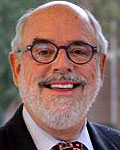 1:15 – 2:30 p.m. — Hannes Zacharias, an assistant professor of practice in KU’s School of Public Affairs and Administration, will speak on “Rediscovering the Arkansas River.” The Arkansas River pierces the heart of America, stretching 1,469 miles from the Tennessee Pass in Colorado to the Mississippi River at the eastern edge of Arkansas. As the nation’s sixth-longest river (45th longest in the world), it is both the economic engine and burden to millions of people and scores of cities bordering its banks. This presentation will examine the impact this wild, elusive, and embattled river has had on cities, towns, and adjacent farmland, from the Louisiana Purchase in 1803 to today.
1:15 – 2:30 p.m. — Hannes Zacharias, an assistant professor of practice in KU’s School of Public Affairs and Administration, will speak on “Rediscovering the Arkansas River.” The Arkansas River pierces the heart of America, stretching 1,469 miles from the Tennessee Pass in Colorado to the Mississippi River at the eastern edge of Arkansas. As the nation’s sixth-longest river (45th longest in the world), it is both the economic engine and burden to millions of people and scores of cities bordering its banks. This presentation will examine the impact this wild, elusive, and embattled river has had on cities, towns, and adjacent farmland, from the Louisiana Purchase in 1803 to today.
Zacharias was appointed to his current professorship in 2019 following a 35-year career managing local governments as assistant to the city manager of Lawrence, KS; city administrator of Boonville, MO; city manager of Hays, KS; and assistant, deputy and county manager 0f Johnson County, KS. He has some 50 years of experience rafting, canoeing, and kayaking rivers throughout the Midwest, including the Colorado River through the Grand Canyon, the Missouri River from Yankton, SD, to St. Louis, the full length of the Buffalo and Kansas rivers, and the Arkansas River in 1976 and 2018.
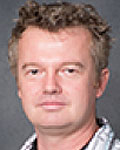 3:00 – 4:15 p.m. — Prof. John Symons will lecture on the social, technological and existential concerns surrounding artificial intelligence. Symons is a professor in KU’s Philosophy Department and director of the Center for Cyber Social Dynamics. “These days,” he says, “I’m especially interested in the philosophy of technology.”
3:00 – 4:15 p.m. — Prof. John Symons will lecture on the social, technological and existential concerns surrounding artificial intelligence. Symons is a professor in KU’s Philosophy Department and director of the Center for Cyber Social Dynamics. “These days,” he says, “I’m especially interested in the philosophy of technology.”
4:30 p.m. – Adjourn.
